#Museum of Prehistory
Explore tagged Tumblr posts
Text
Berlin: Neues Museum
The Neues or New Museum is four stories and contains Egyptian artifacts on the first couple of floors. The 3rd and 4th floors are dedicated to Germanic history. From pre-history to a bit more modern. The gem of this museum is the bust of Nefertiti. The bust may be down an eye but it feels as if she is watching. There is clear quartz over the remaining eye, the light glinting off it gives a…

View On WordPress
#Berlin#Bust of Nefertiti#Europe#Germany#Museum of Prehistory#Neues Museum#Pergamonmuseum#Travel Blogger#Travel Writing
0 notes
Text
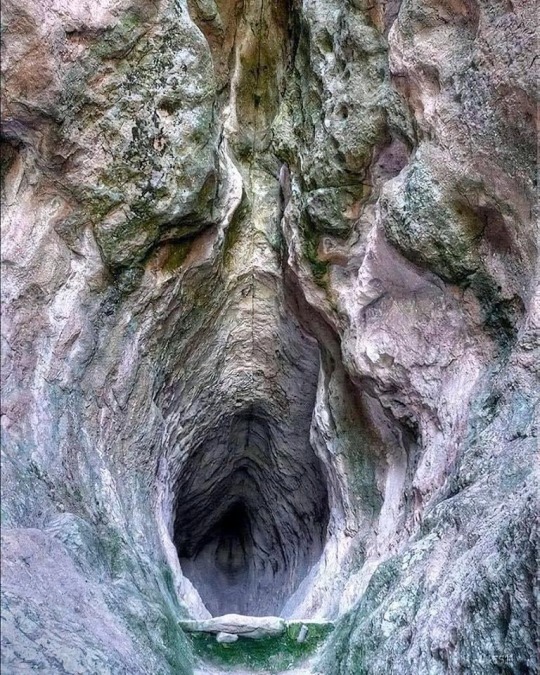
The Utroba Cave, in Bulgaria, is a natural horizontal fissure in a rock that has been further cut and shaped by human hands more than 3000 years ago to resemble a womb. At midday, light seeps into the cave through an opening in the ceiling, projecting an image of a phallus on to the floor
More: https://thetravelbible.com/top-artifacts-from-the-stone-age/
3K notes
·
View notes
Text

Bronze Age Spiral Jewellery Items, The British Museum, London
#ice age#stone age#bronze age#iron age#prehistoric#prehistory#neolithic#mesolithic#paleolithic#archaeology#metalworking#metalwork#gold#spiral art#ancient living#ancient cultures#ancient craft#British Museum
241 notes
·
View notes
Text

Reconstructed skull of a Baryonyx. Lived 130 million years ago.
Museon, The Hague. Photo credit goes to Ghedoghedo on Wikimedia Commons.
#baryonyx#fossil#fossils#dinosaur#extinct animals#animals in art#museon#The Hague#museum#prehistory#archeology#paleontology#prehistoric#ancient history
73 notes
·
View notes
Text
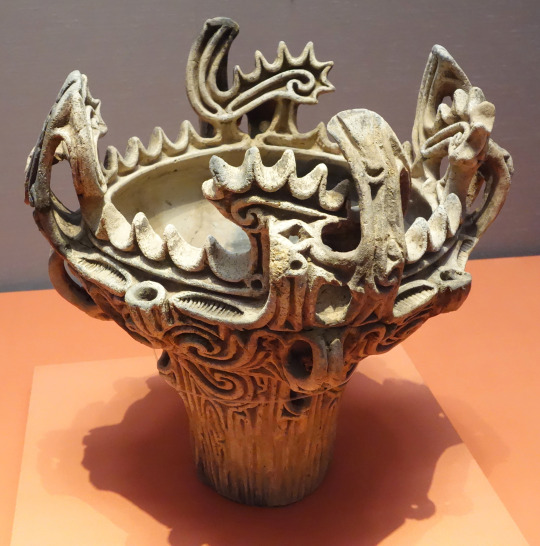
Ornamented pottery in the "Fire Flame" style, dating to the Middle Jomon period (ca. 2500-1500 BCE). Found at Sasayama, Niigata Prefecture, Japan; now in the Tokyo National Museum.
#art#art history#ancient art#prehistoric art#prehistory#Japan#Japanese art#East Asia#East Asian art#Jomon#Jomon period#pottery#ceramics#Tokyo National Museum
626 notes
·
View notes
Text
Vienna Natural History Museum (NHMW)

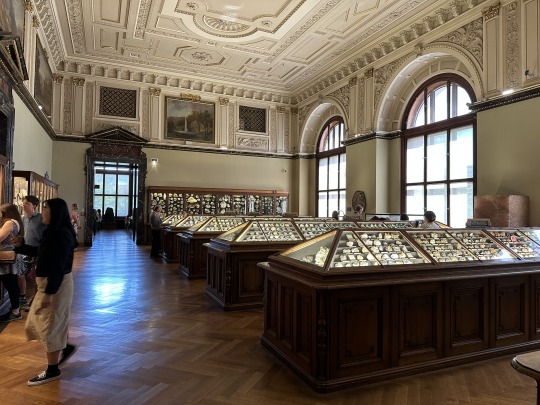
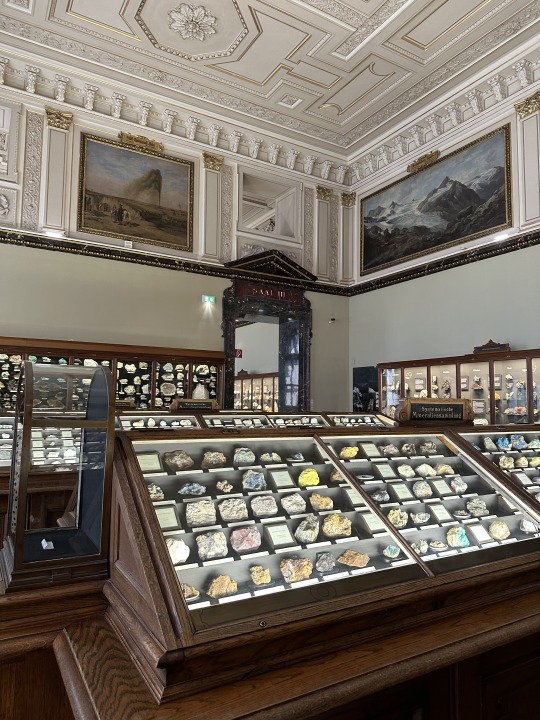
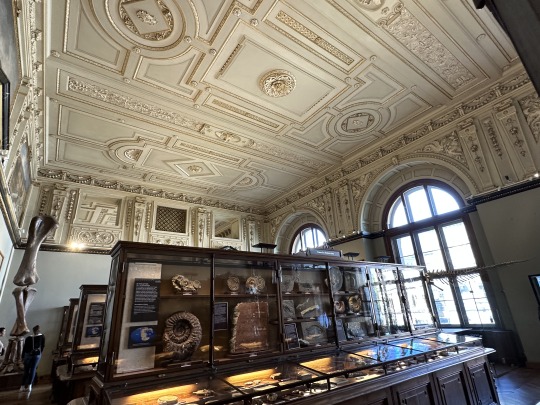

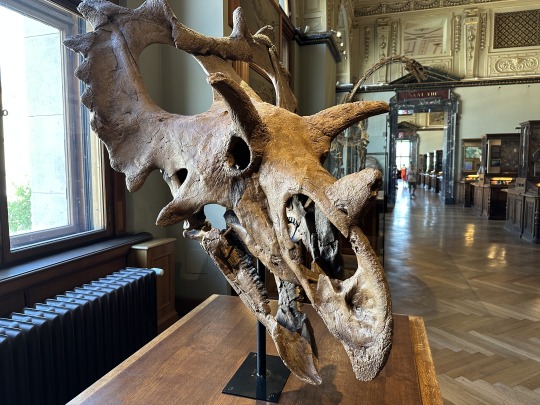
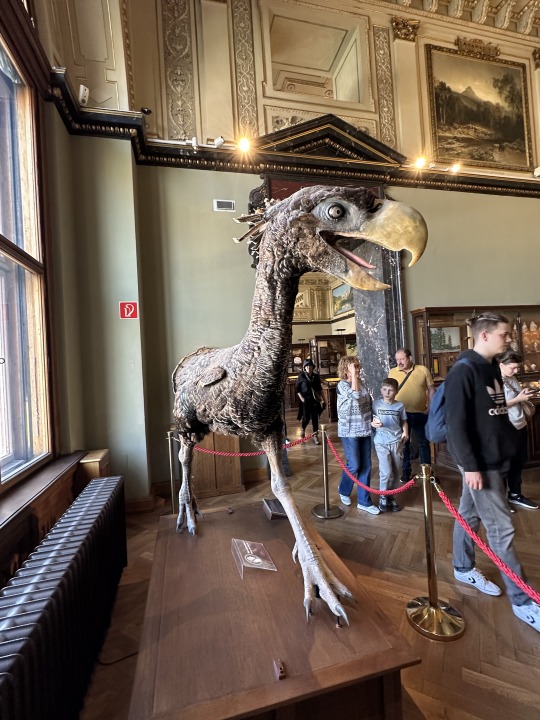
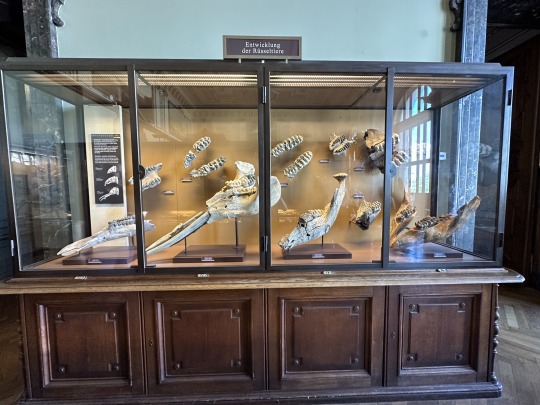
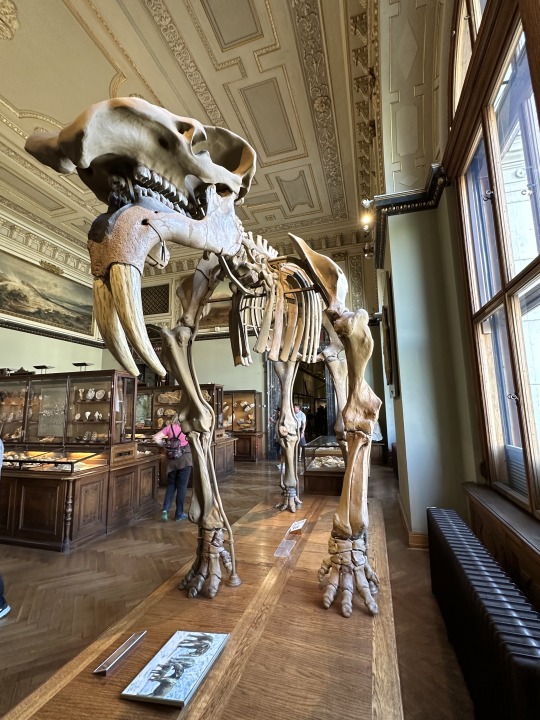
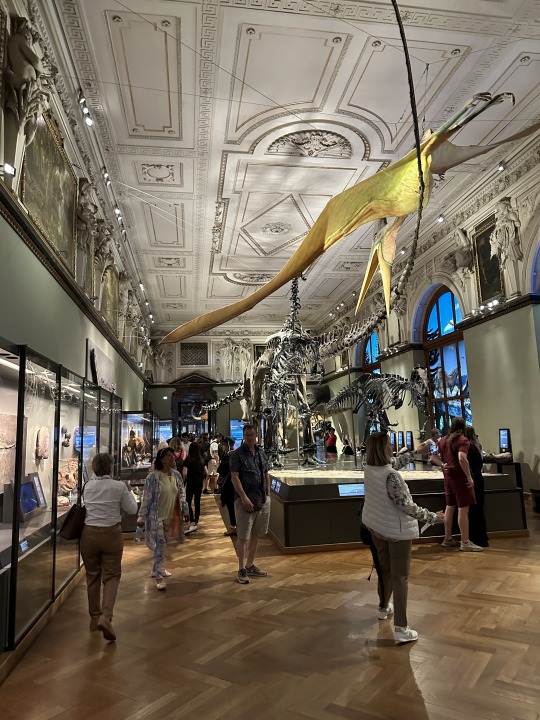
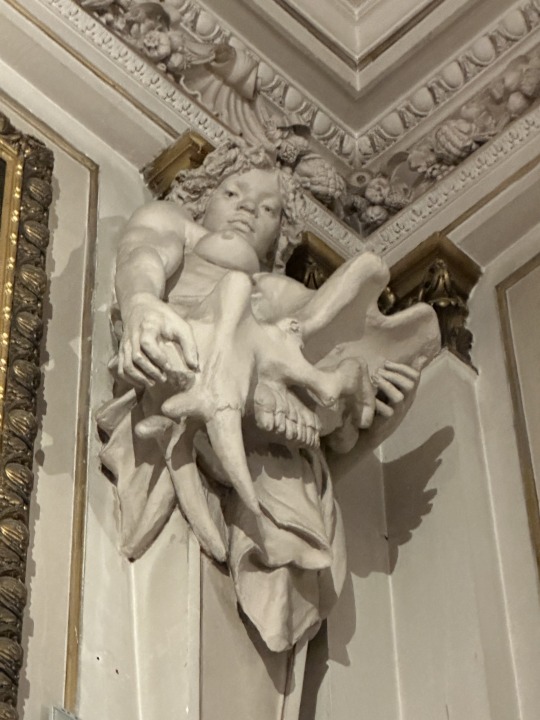

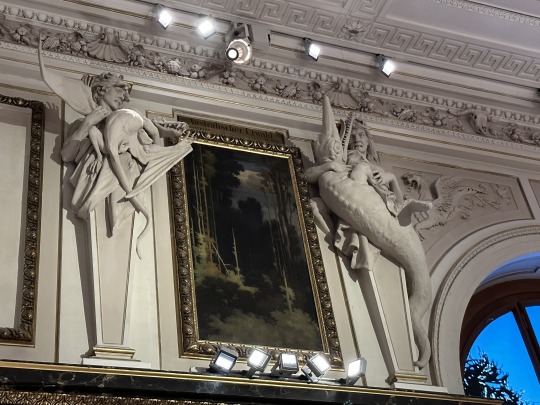
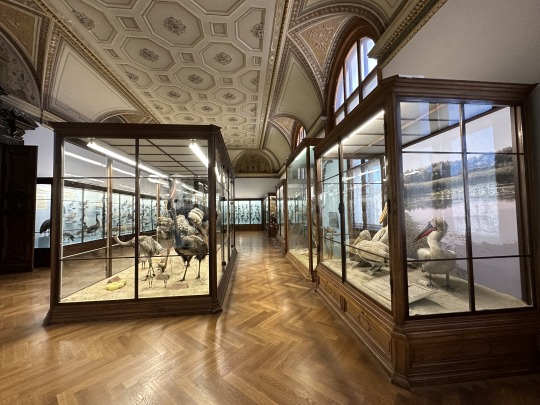
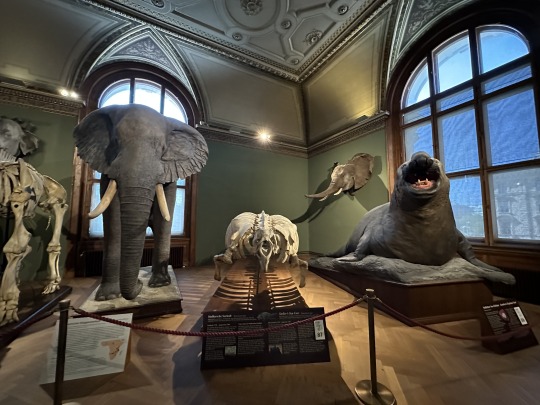



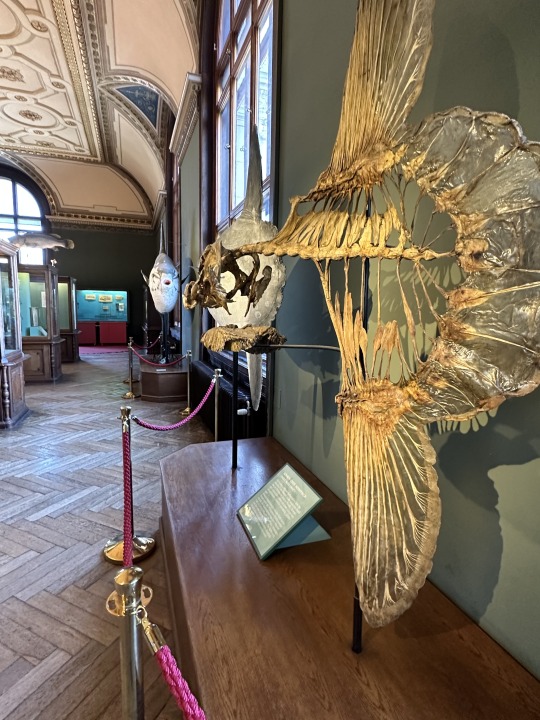

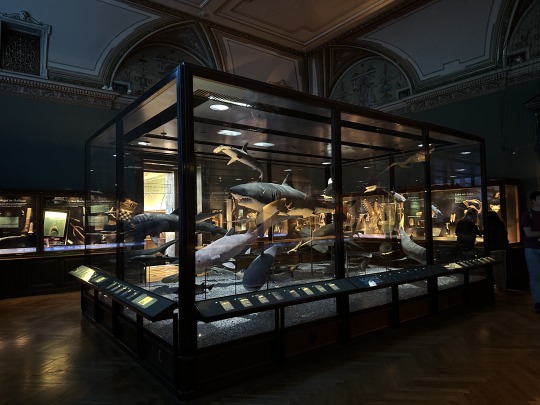

92 notes
·
View notes
Text
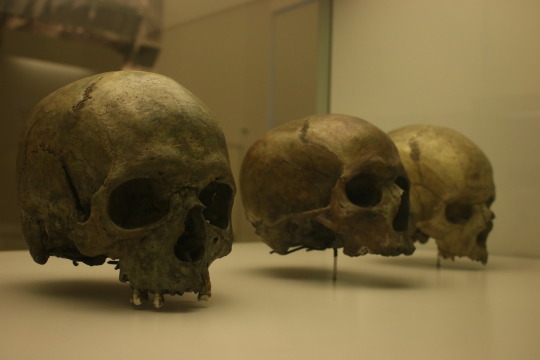
Uviéu, Asturies, 22-03-24
#tw: death#photography#photo#photographers on tumblr#Uviéu#Asturies#22-03-24#aesthetic#aesthetics#skull#museum#archeology#prehistory#archaeology#anthropology
13 notes
·
View notes
Text

On the left: Ornamented Trypillian dishes, 4th millennium BCE, Tomashivka village, Cherkasy region, Ukraine
On the right: Pot, Catacomb (Yamna) culture, 3rd-4th millenia BCE, Shadrivka village, Dnipro region, Ukraine
#art history#art#ukraine#ukrainian art#artwork#from the national museum of the history of ukraine collection#history#ukrainian history#support ukraine#ceramics#prehistoric art#prehistory#prehistoric ceramics#ancient art#ancient history#trypillian archeological culture#trypillian culture#trypillya#trypillia
18 notes
·
View notes
Text
Europa Recens Descripta
William Blaeu
1640

Most histories of Europe start with Greece. Though the area saw the continent’s first literate societies, human settlement here has far deeper roots than the Minoan or Mycenaean civilisations.
For centuries we could only grope in the dark at times such long past, predating any written sources, but the ongoing revolution in the science of history has begun to lift back the veil on humanity’s deep past. Where once we had to piece together an incomplete picture from scattered fragments of pottery or the ruins of burial mounds, now we have the ability to trace genealogies through millennia, reveal old enemies are even older than we thought, and track the influence of climatic change on the populations of ancient humans.
Europe’s prehistory began long before Homo sapiens first walked the African sands and ended when writing first emerged on the islands of the Aegean. From those first scripts carved into the rock came a mythology of origin: Homer, Hesiod, and the other poets sang of a primordial time when gods and heroes once walked the Earth. We’ve never lost the urge to look back and wonder where we came from. Though the story is far from complete, modern science has given us the beginnings of an answer.
M. E. Rothwell here. As always, thanks for letting me into your inbox. If you’re a new subscriber to Cosmographia, welcome! This newsletter is about exploring the world and its beauty, via history, myth, and art.
#William Blaeu#Europa Recens Descripta#1640#M. E. Rothwell#Cosmographia#Europe start with Greece#the Minoan or Mycenaean civilisations#science of history#genealogies through millennia#the influence of climatic change#the populations of ancient humans#Europe’s prehistory#homo sapiens#first walked the African#mythology of origin#Homer Hesiod#via history#history of science#art#art style#antique art#art work#artist painter#scientist of the day#art gallery#art museum#mael omer#xpuigc#xpuigc bloc
8 notes
·
View notes
Text



Archeon, Nederland - 2017
8 notes
·
View notes
Text
National Museum of Denmark
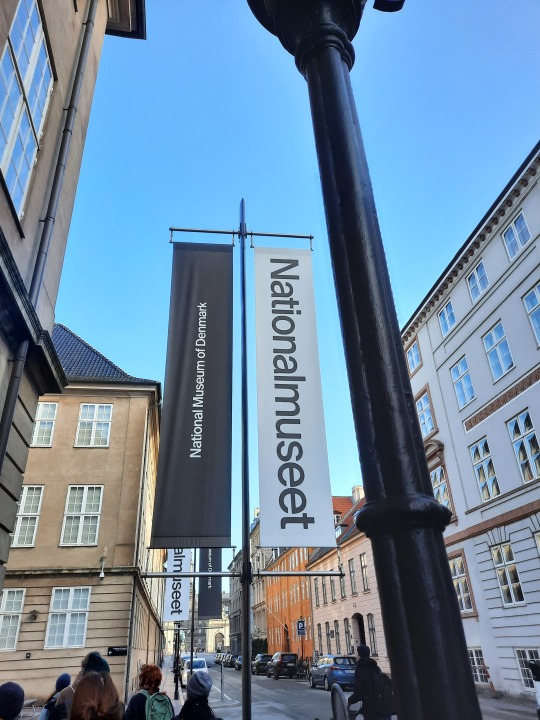
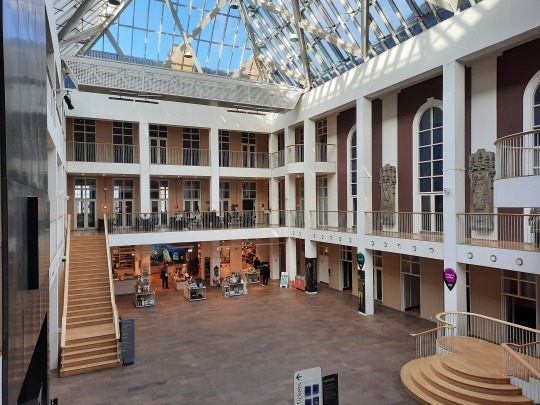

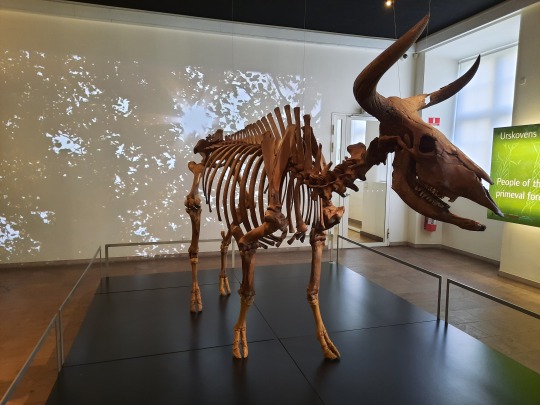
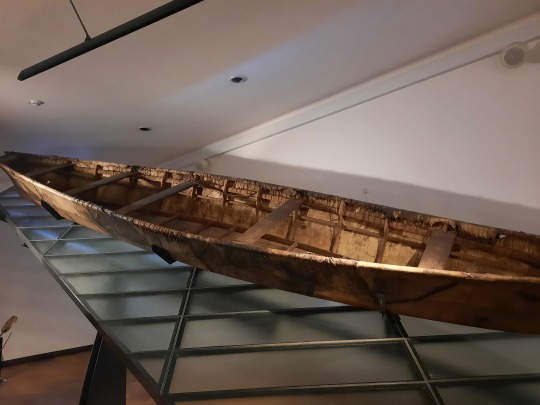
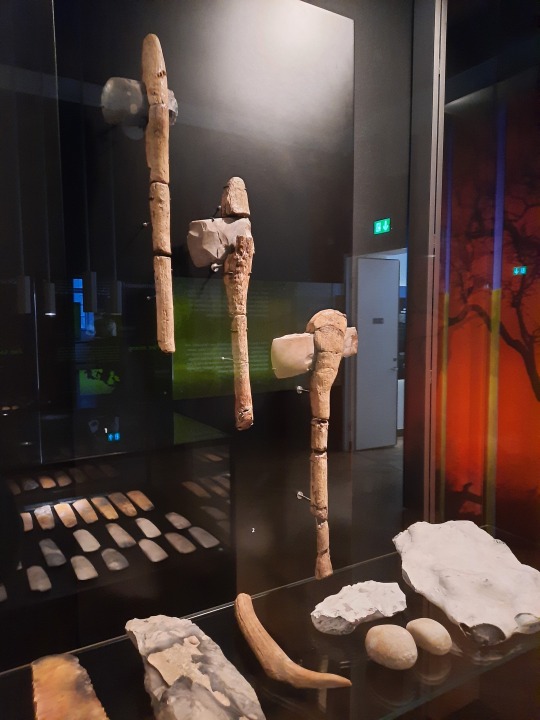
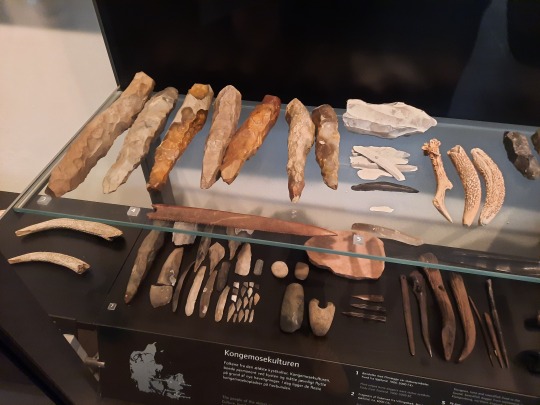
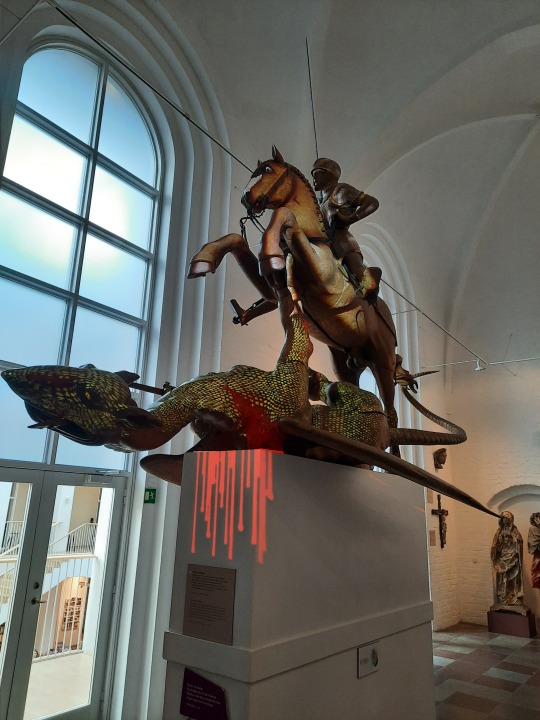
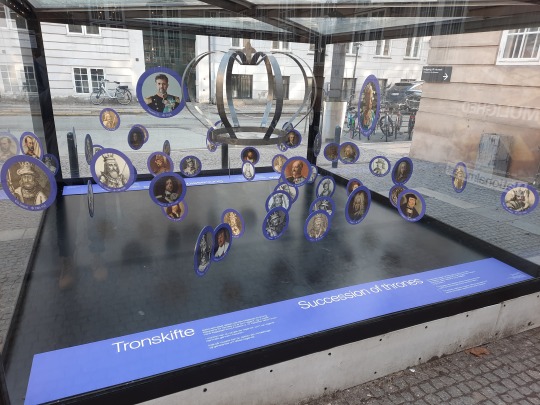
8 notes
·
View notes
Text


Lurs
The lur horns are the distinctively Nordic wind instruments. They were used to create an atmospheric background of sound for Bronze Age rituals. All the lurs were found in bogs and are from the period 1200 - 700 BC.
- Danish History Museum, Copenhagen, Danish Prehistory Exhibit
#history#historyblr#world history#copenhagen#denmark#history museum#museums#museum#museum of history#danish history museum#danish history#bronze age#bronze age history#danish bronze age#danish prehistory exhibit#danish prehistory museum#prehistory of denmark#music#music history#lurs#lur horns#danish music#bronze age music
9 notes
·
View notes
Text
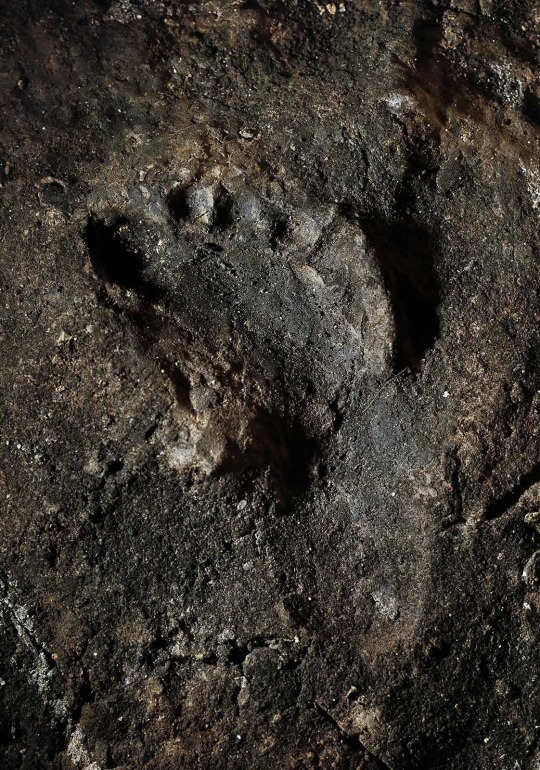
A Neanderthal footprint preserved in the sediments of the Grotte di Toirano, Liguria, Italy. The last Neanderthals left the stage around 40,000 years ago.
More: https://thetravelbible.com/top-artifacts-from-the-stone-age/
950 notes
·
View notes
Text




'The Snettisham Great Torc', Iron Age Torc, The British Museum, London
This torc was discovered in 1950, in a field near the village of Snettisham. The site is on the north-west coast of Norfolk, overlooking the Wash.
This torc is one of the most elaborate golden objects from the ancient world. It is made from an alloy of gold, silver and copper, and weighs over 1 kg. The neck-ring is made from 64 wires in eight separate coils. The ends are elaborately decorated with swirling motifs.
The torc was probably buried around 50 BCE.
#ice age#bronze age#stone age#iron age#prehistoric#prehistory#neolithic#mesolithic#paleolithic#archaeology#electrum#gold#design#torc#jewellery#ancient crafts#ancient living#ancient cultures#status#British Museum
200 notes
·
View notes
Text

Fossil remains of an American Lion. Page Museum at the La Brea Tar Pits.
Credit: https://commons.m.wikimedia.org/wiki/File:Panthera_leo_atrox_Page.jpg#mw-jump-to-license
#animals in art#extinct mammals#extinct animals#fossils#archaeology#archeology#prehistory#prehistoric#ancient history#paleontology#American Lion#American history#museum#page museum
55 notes
·
View notes
Text
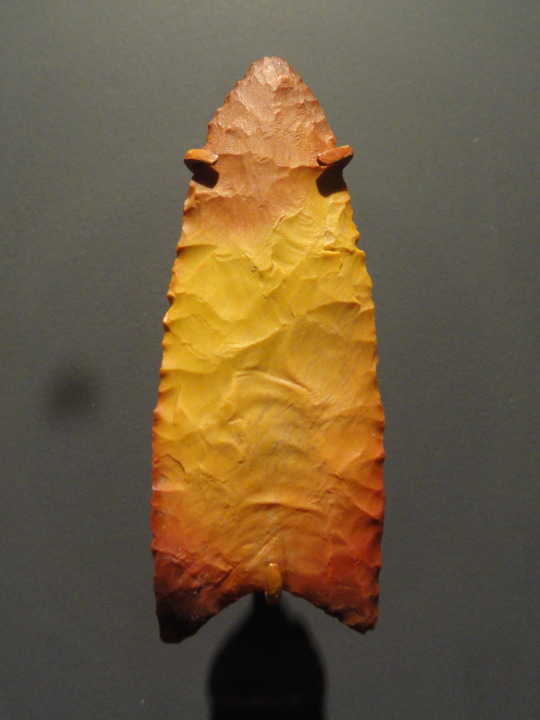
Clovis point, fashioned from chert and belonging to the Clovis culture (so named from early 20th century archaeological finds near Clovis, New Mexico) that spread throughout North America following the Last Glacial Period. Clovis points are distinguished by manufacture through the pressure flaking technique and by fluting near the base. Manufactured between 11,500 and 9,000 BCE and found in Sevier County, Utah; now in the Natural History Museum of Utah, Salt Lake City.
#prehistory#prehistoric#Pre-Columbian#Paleoamerican#Paleoindian#Clovis#Clovis culture#Clovis point#ancient weapons#archaeology#artifact#spearpoint#Natural History Museum of Utah#Stone Age
346 notes
·
View notes